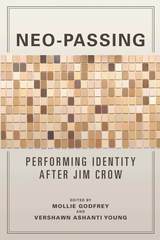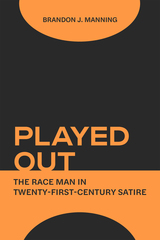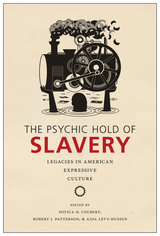3 books about Manning, Brandon J.

Neo-Passing
Performing Identity after Jim Crow
Edited by Mollie Godfrey and Vershawn Ashanti Young: Foreword by Gayle Wald Afterword by Michele Elam
University of Illinois Press, 2018
African Americans once passed as whites to escape the pains of racism. Today's neo-passing has pushed the old idea of passing in extraordinary new directions. A white author uses an Asian pen name; heterosexuals live "out" as gay; and, irony of ironies, whites try to pass as black. Mollie Godfrey and Vershawn Ashanti Young present essays that explore practices, performances, and texts of neo-passing in our supposedly postracial moment. The authors move from the postracial imagery of Angry Black White Boy and the issues of sexual orientation and race in ZZ Packer's short fiction to the politics of Dave Chappelle's skits as a black President George W. Bush. Together, the works reveal that the questions raised by neo-passing—questions about performing and contesting identity in relation to social norms—remain as relevant today as in the past. Contributors: Derek Adams, Christopher M. Brown, Martha J. Cutter, Marcia Alesan Dawkins, Michele Elam, Alisha Gaines, Jennifer Glaser, Allyson Hobbs, Brandon J. Manning, Loran Marsan, Lara Narcisi, Eden Osucha, Gayle Wald, and Deborah Elizabeth Whaley
[more]

Played Out
The Race Man in Twenty-First-Century Satire
Brandon J. Manning
Rutgers University Press, 2022
Dating back to the blackface minstrel performances of Bert Williams and the trickster figure of Uncle Julius in Charles Chesnutt’s Conjure Tales, black humorists have negotiated American racial ideologies as they reclaimed the ability to represent themselves in the changing landscape of the early 20th century. Marginalized communities routinely use humor, specifically satire, to subvert the political, social, and cultural realities of race and racism in America. Through contemporary examples in popular culture and politics, including the work of Kendrick Lamar, Key and Peele and the presidency of Barack Obama and many others, in Played Out: The Race Man in 21st Century Satire author Brandon J. Manning examines how Black satirists create vulnerability to highlight the inner emotional lives of Black men. In focusing on vulnerability these satirists attend to America’s most basic assumptions about Black men. Contemporary Black satire is a highly visible and celebrated site of black masculine self-expression. Black satirists leverage this visibility to trouble discourses on race and gender in the Post-Civil Rights era. More specifically, contemporary Black satire uses laughter to decenter Black men from the socio-political tradition of the Race Man.
[more]

The Psychic Hold of Slavery
Legacies in American Expressive Culture
Soyica Diggs Colbert, Robert J. Patterson, and Aida Levy-Hussen
Rutgers University Press, 2016
What would it mean to “get over slavery”? Is such a thing possible? Is it even desirable? Should we perceive the psychic hold of slavery as a set of mental manacles that hold us back from imagining a postracist America? Or could the psychic hold of slavery be understood as a tool, helping us get a grip on the systemic racial inequalities and restricted liberties that persist in the present day?
Featuring original essays from an array of established and emerging scholars in the interdisciplinary field of African American studies, The Psychic Hold of Slavery offers a nuanced dialogue upon these questions. With a painful awareness that our understanding of the past informs our understanding of the present—and vice versa—the contributors place slavery’s historical legacies in conversation with twenty-first-century manifestations of antiblack violence, dehumanization, and social death.
Through an exploration of film, drama, fiction, performance art, graphic novels, and philosophical discourse, this volume considers how artists grapple with questions of representation, as they ask whether slavery can ever be accurately depicted, trace the scars that slavery has left on a traumatized body politic, or debate how to best convey that black lives matter. The Psychic Hold of Slavery thus raises provocative questions about how we behold the historically distinct event of African diasporic enslavement and how we might hold off the transhistorical force of antiblack domination.
[more]
READERS
Browse our collection.
PUBLISHERS
See BiblioVault's publisher services.
STUDENT SERVICES
Files for college accessibility offices.
UChicago Accessibility Resources
home | accessibility | search | about | contact us
BiblioVault ® 2001 - 2024
The University of Chicago Press









